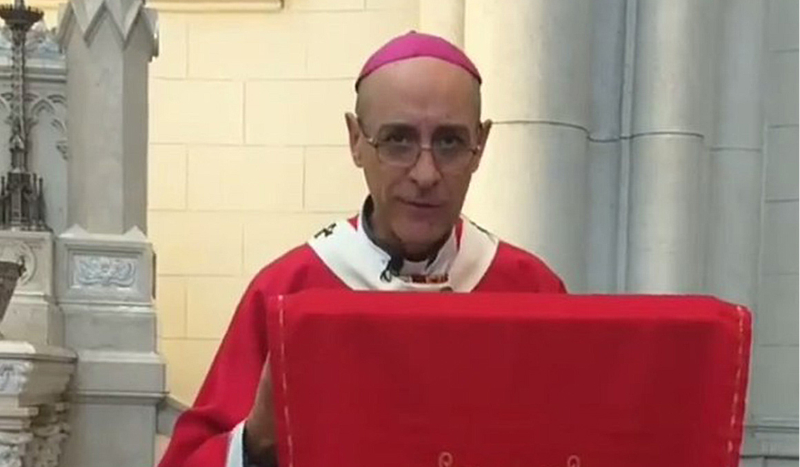
Romanuspontifex / Wikimedia Commons
CV NEWS FEED // Cardinal Victor Manuel Fernandez, head of the Dicastery for the Doctrine of the Faith (DDF) recently spoke about the disgraced former Jesuit Father Marko Rupnik, who faces accusations of abuse from dozens of victims, predominantly women religious.
Cardinal Fernandez discussed the case during an interview with Madrid’s archdiocesan weekly, Alfa y Omega, published Jan. 23.
When asked if he perceives any urgency in prosecuting Fr. Rupnik, who is credibly accused of multiple accounts of clerical sex abuse, the Cardinal said that the artist-priest’s case is not the worst he has heard of.
“In fact,” he said, “I am thinking of many other cases, and some perhaps more serious but less publicized. We cannot think of a new law for just one case, because that would limit the vision and harm the objectivity of the work.”
However, Cardinal Fernandez confirmed that the DDF, tasked with investigating and prosecuting the most serious offenses committed by clerics, is at last moving forward with the investigation.
“Regarding the Rupnik case, the Dicastery has concluded the stage of gathering information that was in very different places, and has made a first analysis,” he said. “We are now working to set up an independent tribunal that will move on to the final phase through a criminal judicial process.”
He added, “In cases like this it is important to find the most suitable people, and for them to accept.”
The DDF had archived the case in October 2022, saying that the abuse charges against Fr. Rupnik were statute-barred, despite extensive evidence and recommendations for a trial.
In 2023, Pope Francis ordered the DDF to reevaluate the evidence due to public outcry over Fr. Rupnik’s continued status as a priest in good standing within the Diocese of Koper in Slovenia. However, the Vatican has yet to release an exhaustive list of the specific charges brought against the former Jesuit.
When asked how he envisions this classification will aid in preventing abuses and restoring the trust of the faithful, the Cardinal responded that he believes it will help the faithful recognize the “maternal care of the Church.”
“But it will also help to avoid that dangerous form of clericalism that leads some priests to believe that they are authorized to do anything because of the ‘sublimity’ of their consecration,” he said. “In that sense, I think we are at a turning point.”
“In any case,” he continued, “care must also be taken to ensure that it does not produce an undesirable effect of distrust in everything spiritual, as has occurred in history with the condemnation of certain spiritual movements.”

